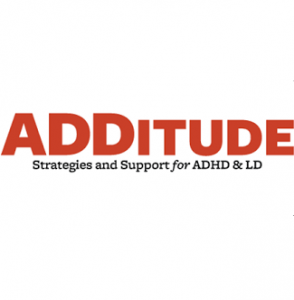Tag: School & Learning
Psychology Today: Graduating Seniors with ADHD
It’s just not the senior spring semester you pictured. No in-person ceremonies, no senior week festivities and no special celebrations. For many seniors, school is (almost) over. Instead of participating in typical end-of-the-year traditions, having meaningful goodbyes with friends, you’re closing your computers and sitting in the same room as before. Of course, it’s disappointing and sad to experience the dramatic changes COVID-19 has wrought on our lives over these past few months. Whether you’re relieved that online school is over and happy to be finished with school or you’re missing an independent life and hanging out with your friends, it’s perfectly normal to have a wide range of reactions to the upheaval in your life. Click logo below to read more.
22 News Mass Appeal: Alternative ways to honor 2020 graduates during COVID-19
(Mass Appeal) – There’s a lot of disappointment for the graduating seniors this year: prom dresses will be left hanging in the closet; mortar boards will not get tossed in the air. Clinical psychologist Dr. Sharon Saline joins us today to talk about how you can empathize with your graduate, as well as honor them for their accomplishments. Dr. Saline suggests to first offer support and validate their feelings of disappointment. Also, if you get some push back from your teen, it’s most likely because they are upset. Don’t tolerate abusive behavior, said Dr. Saline, but increased reactivity is normal. Also, find ways they can celebrate their accomplishments. Have them share important pieces of work, dress up, bake them a cake. Also encourage them to be with friends safely through zoom events or even allow them to gather – with social distancing – in your driveway for a visit. Click logo below to watch!
The SSAT: Navigating Parenting and Learning in a Remote Environment
As we navigate unusual circumstances with our children moving to remote learning during COVID-19, we know that families have questions around screen time as well as the social-emotional issues related to the physical isolation children are experiencing. We presented this webinar with information from SEL experts and welcomed questions at the end. Featured Topics
- Developing screen time rules and creating balance
- Staying current without becoming overwhelmed
- Modeling healthy habits and boundaries
- Mentoring children on technology and social media
- Dealing with social isolation, anxiety, and depression
Click logo below to watch.
IECA Insights: Female Students With ADHD: How IECs Can Help
Nia was so excited to go to college. She’d been diagnosed with inattentive attention deficit hyperactivity disorder (ADHD) in eighth grade and received accommodations, such as extra time on tests, preferential classroom seating, and getting copies of teachers’ notes. An executive functioning coach helped her use a calendar and organize assignments. Nia worked hard, graduated with a 3.8 GPA, and moved into her college dorm with high expectations. Sadly, six months later, she was back home. Depressed, anxious, and on academic probation, she’d isolated herself, dropped one class, and failed two. Click logo below to read more.
ADDitude Magazine: How Do I Know If My Teen Is Really Ready for College?
Your teen with ADHD has his heart set on a four-year college far from home. How do you know if he’s really ready and able to live independently while also managing a challenging college course load? The answer is rarely clear cut, but here is a plan for defining markers, gauging progress, and making a decision. Click logo below to read more.
The Philadelphia Inquirer: Homeschooling a child with ADHD? Here’s some expert advice
As you collapse into bed after another exhausting day of managing your child with attention-deficit/hyperactivity disorder (ADHD) 24/7, you’re probably wondering how your family is going to survive an extended stay-at-home order. While it’s challenging enough for you to stay calm in the midst of all of the changes and unknowns of COVID-19, it’s extra tough supervising kids who struggle with academics, miss their friends and argue with their siblings. Living with a child or teen with ADHD and/or a learning disability (LD) is complicated enough without those added challenges. What can you do to ease the stress and create a home structure that works for everybody? Click logo below to read more.
Share My Lesson: Daily Schedule for ADHD Families: Remote Learning in the Time of Coronavirus
ADHD Distance Learning: Setting Up for Success The coronavirus outbreak is changing our lives by the moment, but one constant is true: You’re unsure how to manage several weeks of closed schools and social isolation with your children, who happen to have ADHD. The big questions are: What can you do to set up a family plan that fosters more cooperation and less arguing during this unsettled time of COVID-19? How can you devise a plan that you can actually follow and your kids will buy into? We know that kids with ADHD benefit from structure, but what can you realistically pull off? Here is some helpful advice to get you started. Click logo below to read more.
Psychology Today: Home from College and the Novelty’s Worn Off: Now What?
This is nothing you ever expected—being stuck at home 24/7 with your parents and siblings while being separated from your friends, your school and your job. Academic, social and financial changes increase your stress with no clear solutions in sight. It’s natural to feel disappointed, confused, angry or worried. Plus, living around your family makes it tough not to fall back into old family patterns. All you want is to hold onto your independent identity but your life’s been turned upside down. Now what? Click logo below to read more.
The Inquirer, Daily News, Philly: How can I help my child with ADHD have a successful school year?
Start the school off right. Helpful recommendations to get students with ADHD – and their parents – organized and focused. continue reading…








